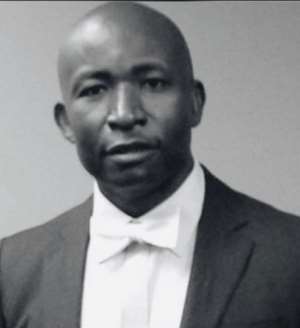
By Ebenezer Ato Ntarkurfah Jackson
In 2022, Pierre Frank Larporte, World Bank Director, and Dr. Bawumia, the Vice President, voiced concerns about the negative impact of "pay or take" energy sector agreements signed during the Mahama government. These assertions, although made in late 2022, require careful scrutiny and contextualization within the broader discourse on energy contracts, particularly when considering insights from respected scholars.
Dr. Bawumia's claim regarding the detrimental effects of energy sector agreements signed under the Mahama government is unsubstantiated when considering the perspectives of esteemed scholars such as Ronald Coase, Oliver Hart, Steven Shavell, and Richard Posner. These experts argue that contracts like "take or pay" agreements play a vital role in reducing uncertainty and promoting efficient resource allocation, challenging the notion that such agreements are inherently negative.
Furthermore, Pierre Frank Larporte's argument regarding costly power purchases and Ghana's debt burden warrants scrutiny. It appears that Larporte failed to consider the broader context, particularly the mismanagement of the energy sector by the current NPP administration led by Dr. Bawumia. The rationale behind paying for unused energy under "take or pay" contracts provides stability and security for both buyers and sellers, as emphasized by scholars like Shavell and Posner.
John Jinapor, former Deputy Minister of Power, refutes claims made by Samuel Atta Kyea, Chairman of the Mines and Energy Committee of Parliament, regarding the NDC's engagement in 43 take-or-pay power purchase agreements. Jinapor's denial highlights the importance of substantiating such accusations with concrete evidence, underscoring the need for transparency and accountability in the discourse surrounding energy contracts.
Former President Mahama's adoption of "pay or take" contracts aimed to stabilize Ghana's energy sector, addressing challenges like frequent power outages. This approach mirrored successful strategies employed in other countries, attracting investment and ensuring revenue predictability. However, the current NPP administration's focus on blaming existing agreements for Ghana's financial woes overlooks broader economic factors, including excessive borrowing and spending.
The criticism leveled against "pay or take" agreements by the Bawumia-led government diverts attention from the real causes of Ghana's debt burden. Rather than dismantling existing contracts, policymakers should address underlying issues such as excessive borrowing and spending. Drawing upon examples from countries like Mexico, Kazakhstan, and Norway, where "pay or take" contracts have successfully stabilized energy sectors, Ghana can develop effective strategies to ensure sustainable economic development and uninterrupted power supply. By leveraging scholarly insights on energy contracts, policymakers can make informed decisions to benefit Ghana's energy sector and overall economy.
Ebenezer Ato Ntarkurfah Jackson, Cornell University-Johnson School of Business, MBA Class of 2015, [email protected]




 Voter registration: Election Watch Ghana accuse EC of using stolen BVRs to regis...
Voter registration: Election Watch Ghana accuse EC of using stolen BVRs to regis...
 Medikal's predicament is a typical example of why men must fear buttocks – Ste...
Medikal's predicament is a typical example of why men must fear buttocks – Ste...
 Payroll audit: GHS2.8 million found being paid to ‘ghost names’ in Northern regi...
Payroll audit: GHS2.8 million found being paid to ‘ghost names’ in Northern regi...
 Payroll audit: Non-existent school had staff who were being paid in Northern reg...
Payroll audit: Non-existent school had staff who were being paid in Northern reg...
 OSP, CAGD identifies, clears ‘ghost names’ on government payroll; saves Ghana ov...
OSP, CAGD identifies, clears ‘ghost names’ on government payroll; saves Ghana ov...
 Dr. Sam Ankrah urges Electoral Commission to address registration issues and pro...
Dr. Sam Ankrah urges Electoral Commission to address registration issues and pro...
 Only Mahama can turn things around for Ghana — Prof David Millar
Only Mahama can turn things around for Ghana — Prof David Millar
 "I voted for Akufo-Addo in 2016 to be just one-term president, thought he had th...
"I voted for Akufo-Addo in 2016 to be just one-term president, thought he had th...
 A society where there is injustice will not last; peace won’t prevail – Oliver B...
A society where there is injustice will not last; peace won’t prevail – Oliver B...
 NDC is best positioned to lead the country out of its current difficulties – Gha...
NDC is best positioned to lead the country out of its current difficulties – Gha...
